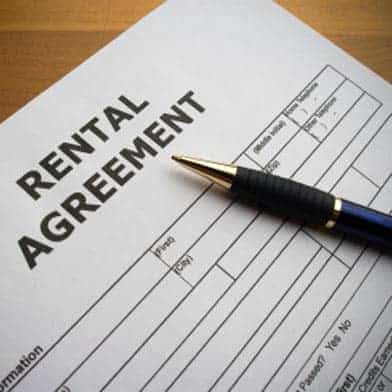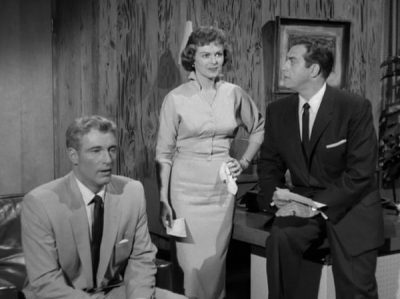Break the lease.
I’ve read your columns on the SF Appeal and tried to find a direct answer to my question in a few of them, but haven’t really hit the nail on the head. Here’s my situation:
I live in a building (not a house) in the USF/Pandhandle area in San Francisco that was built in 1917. It is 6 units. I am 25 years old, and have lived in the unit since May 1, 2011. The rent is $2050 per month.
In May when I moved, I found a roommate off Craigslist, Alison. She and I both planned on being there for at least a year, and so we both signed the lease. There were zero issues, and the move went smoothly.
My landlord seems like a good guy. When Alison told me in September that she would be leaving the city for work, my landlord agreed to let her sublet her room to a new tenant. I found a replacement roommate, Bijou. Bijou signed a 6.14 notice. I didn’t realize the implications of this notice at signing – he sent it to her and she sent it back to him — I didn’t even look it over. My mistake.
Fast forward to today. My boyfriend and I decided to move-in together, and due to high rent and low availability, we ended up snapping up an apartment now instead of waiting until my lease ended in May. My new lease starts Feb 1, and I plan on moving at the end of this month.
I wrote an exhaustingly long email to my landlord about this, asking if I can sublet my room for the remainder of my lease. Bijou said she would even sign a new year lease if need be with her friend who is interested in moving in. My landlord said that it was “okay” for me to move out (aka I didn’t have to pay a fee for breaking my lease?) but that since I was the “original occupant” on the lease, that the lease would be null and void. That didn’t make sense to me, since he let Alison (old roommate) do it easily – I figured I’d be in the same boat.
My landlord then went on to say that he “might” raise the rent (no word yet on how much – my emails and calls have gone unanswered) and that he wasn’t sure if he wanted Bijou and new tenant to sign a lease but that he wouldn’t evict them, either. Huh? What are his rights in this sense, and what are Bijou’s rights? I feel responsible since I’m the one leaving early and complicating matters, but the landlord hasn’t told me I’m doing anything illegal or wrong — yet.
I made it very clear that I wanted to do a walk-through to get my security deposit back, and have been pressing him for information regarding the lease ending early, Bijou signing a new lease, and the rental cost. What else do I need to do to cover myself? What are his rights and what are Bijou’s rights in this situation?
What does being an “original tenant” mean, and why was Alison (old roommate) allowed to leave and sublet easily, but he won’t let me do the same?
Welcome to the world of Rent Board Topic No. 153: “Rent Increases Under Section 6.14 And Costa-Hawkins.” San Francisco Rent Board Rules & Regulations § 6.14 and California’s Costa-Hawkins Rental Housing Act (Civil Code § 1954.50 to 1954.535) were designed to deal with “revolving door” tenancies–tenancies that pass from roommate to roommate over the years until everyone on the original lease is gone.
San Francisco’s ordinance has always provided that a landlord can increase the rent as he sees fit after all of the tenants vacate a unit. Rule 6.14 was designed to determine when a tenancy ended for purposes of increasing the rent.
On the other hand, California rent control ordinances were stripped of “vacancy control” by Costa Hawkins in 1996. For example, in Berkeley a landlord had to register his units price and all. Rents were only allowed to increase by allowable limits even after all the tenants vacated a given unit. Before Costa Hawkins it wasn’t as important to determine when a tenancy ended because the rental rate was controlled unit by unit.
Flash forward to now. In order to determine if a tenant is an “original occupant” a “subsequent occupant” or a “co-occupant” one must understand the interplay between 6.14 and Costa Hawkins. As you might guess, it can get very complicated. This is an issue that is often adjudicated at the Rent Board because it is misunderstood by landlords and tenants alike.
You have correctly kept the landlord and your new roommate in the loop and your tenancy is new compared to those who operated for years, adding roommates with or without the landlord’s consent.
In a nutshell, you are the last “original tenant” on the lease–the last named tenant, the last signatory. Your landlord consented to adding your roommate, Bijou, because likely he could not have unreasonably withheld that consent. Check your lease and Rules and Regulations §6.15A or §6.15B. He had no reason to deny consent anyway because you still had a one-year lease and he had ample remedies if you breached the lease, i.e. left without paying the rent.
In your case, however, one cannot readily apply the rules of either of the relevant statutes. Why? Because both Costa Hawkins and Rules & Regulations § 6.14 assume that a tenancy is a month-to-month tenancy. You have a term lease that does not expire until April 30, 2012.
You and your landlord can agree to terminate the lease now. Any agreement to do so, should be in writing. At that point Bijou would assume the status of a holdover subtenant–a subsequent occupant for purposes of Rules & Regulations § 6.14.
After you leave, the landlord cannot evict Bijou because he consented to her subtenancy. He can, however, increase the rent because you, the last original occupant, vacated. That she signed a 6.14 notice is irrelevant.
This alternative is advantageous to you because terminating the entire lease would entitle you to a refund of your security deposit upon move-out. It is advantageous to the landlord because he can increase the rent, using the rationale of Costa Hawkins that allows a rent increase:
“Where the original occupant or occupants who took possession of the dwelling or unit pursuant to the rental agreement with the owner no longer permanently reside there, an owner may increase the rent by any amount allowed by this section to a lawful sublessee or assignee who did not reside at the dwelling or unit prior to January 1, 1996.” (Civil Code § 1954.53(d)(2).)
Yet as you scramble to get out of the lease and your greedy landlord tries to increase the rent you forgot about the person who will be hurt under this scenario–Bijou. One of the factors upon which she based her decision to move in was the amount of rent. At the very least she relied upon the fact that the rent could not be increased at all until April 30, 2012. She may also have relied upon the fact that the rent-controlled tenancy would only be subject to annual allowable increases. What is she supposed to do?
If the landlord increased the rent, I might advise her to sue you for the difference between the original rent and the increased rent because she relied on your representation that you had a valid lease and that she was a lawful subtenant.
The best way to deal with this is to execute a “novation,” a new agreement in which all parties consent to replace Bijou as the original tenant on the lease. That way Bijou can get a new roommate. Bijou can collect half of the security deposit which she can refund to you. The landlord will continue to collect rent based upon his original deal (and financial expectation) with you.
If the landlord balks, you should point out that he will not be damaged at all. He signed the lease with you and agreed upon a rent amount that he knew was controlled. You may have lived in the unit for years. He agreed to the deal and understood its ramifications. There is absolutely no difference between his deal with you and his new deal with Bijou.
If you just leave, I would argue that the lease is still valid until at least April 30 regardless of Bijou’s presence. It’s an argument I might lose. You would still be responsible if Bijou breached the lease and you would not be entitled to refund of the security deposit until everyone moved out.
Bottom line: this is going to be a mess, no matter how you play it. And it’s your fault.






 This is a dance you probably shouldn't try to do by yourself. Almost all tenants need a lawyer to lead. You likely have a better chance buying a house than you do prevailing in an unlawful detainer by defending yourself.
This is a dance you probably shouldn't try to do by yourself. Almost all tenants need a lawyer to lead. You likely have a better chance buying a house than you do prevailing in an unlawful detainer by defending yourself.
 The Costa Hawkins Rent Housing Act, a bi-partisan law enacted in 1995 by the band of pandering griftocrats we call our state legislators, that eviscerated local rent control.
The Costa Hawkins Rent Housing Act, a bi-partisan law enacted in 1995 by the band of pandering griftocrats we call our state legislators, that eviscerated local rent control.


